 |
…it’s arguable now that our ability to identify great people has deteriorated. We have created so much data that we’re drowning in it.
|
5 |
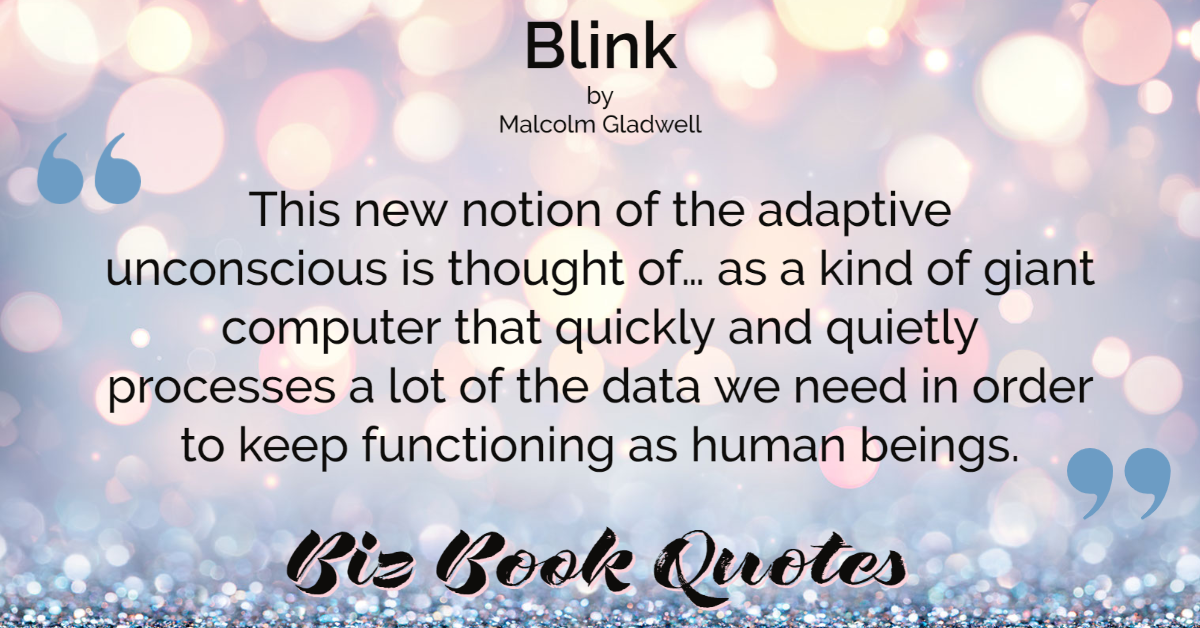 |
This new notion of the adaptive unconscious is thought of… as a kind of giant computer that quickly and quietly processes a lot of the data we need in order to keep functioning as human beings.
|
11 |
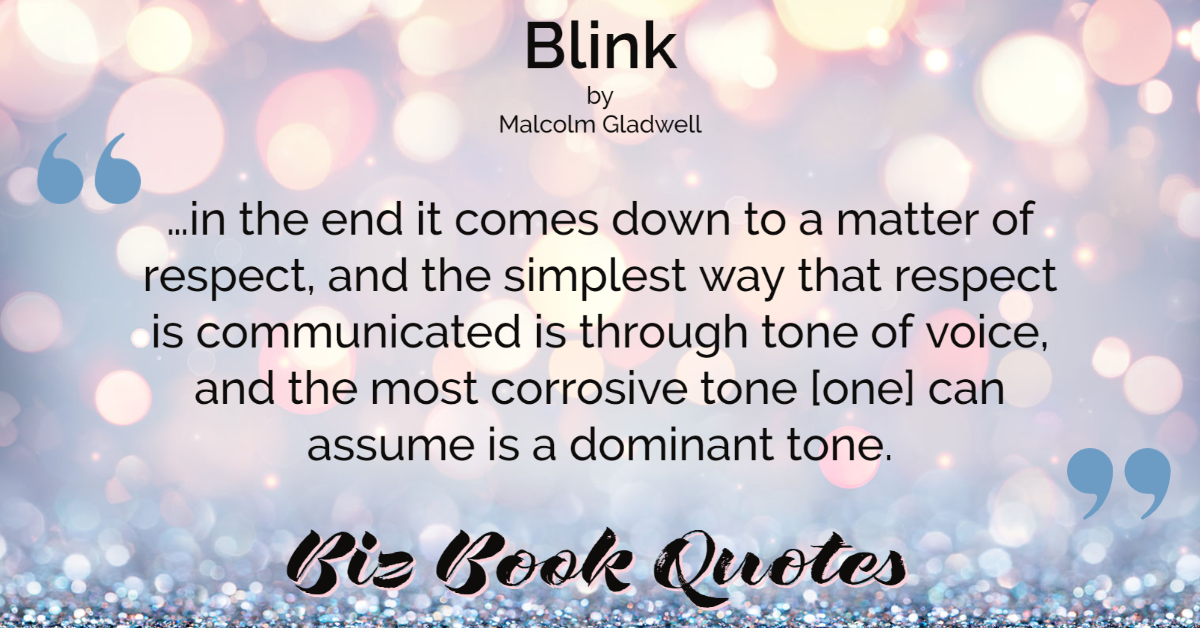 |
…our unconscious silently crunches all the data it can from the experiences we’ve had, the people we’ve met, the lessons we’ve learned, the books we’ve read, the movies we’ve seen, and so on, and it forms an opinion.
|
85 |
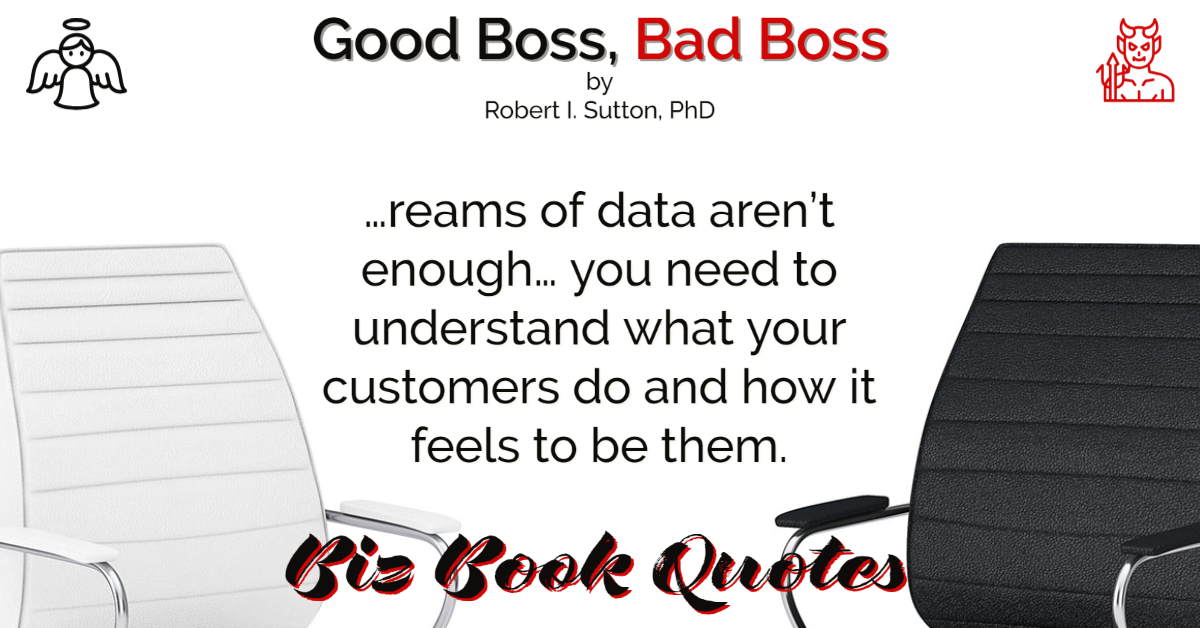 |
…reams of data aren’t enough… you need to understand what your customers do and how it feels to be them.
|
138 |
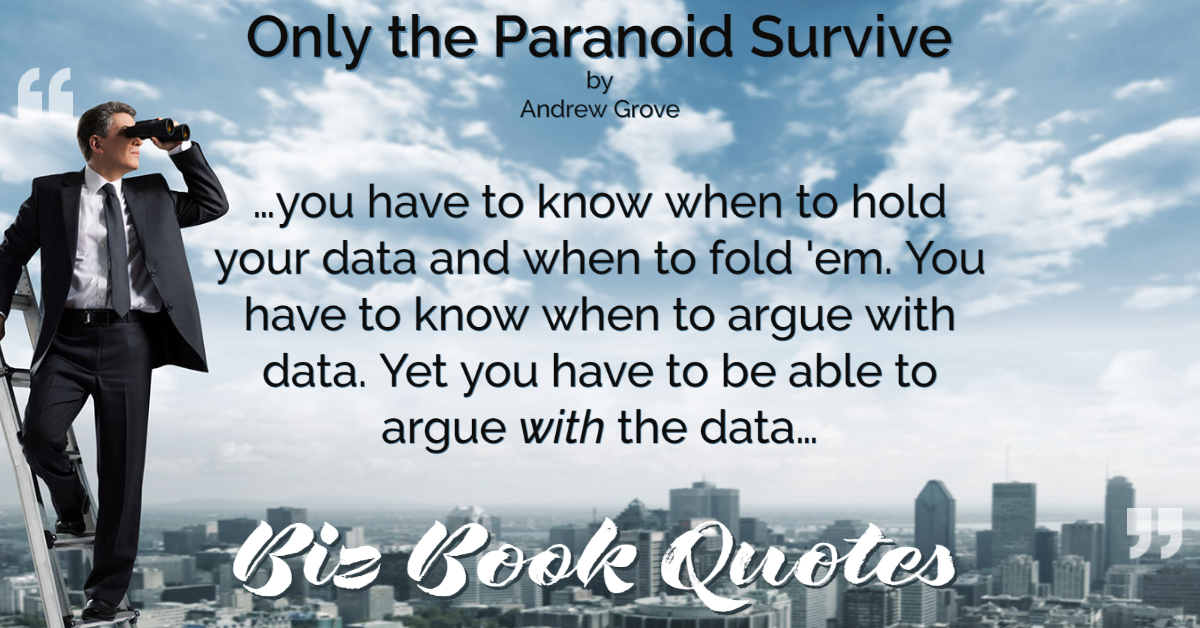 |
…you have to know when to hold your data and when to fold ’em. You have to know when to argue with data. Yet you have to be able to argue with the data…
|
117 |
 |
…when dealing with emerging trends, you may very well have to go against rational extrapolation of data and rely instead on anecdotal observations and your instincts.
|
117 |
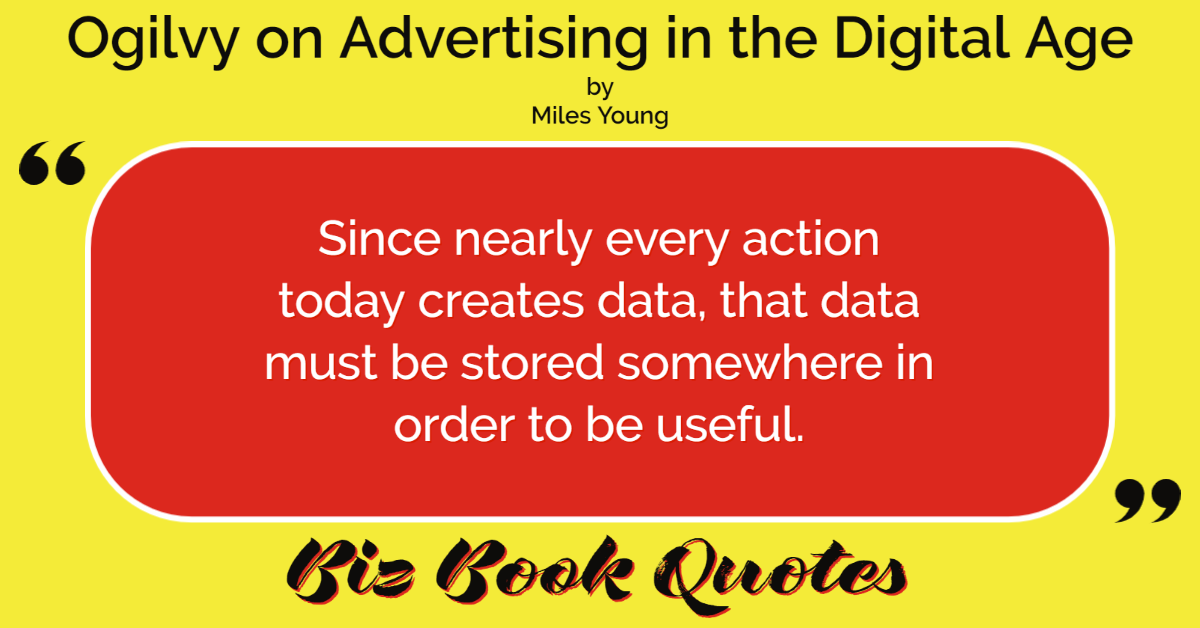 |
Since nearly every action today creates data, that data must be stored somewhere in order to be useful.
|
120 |
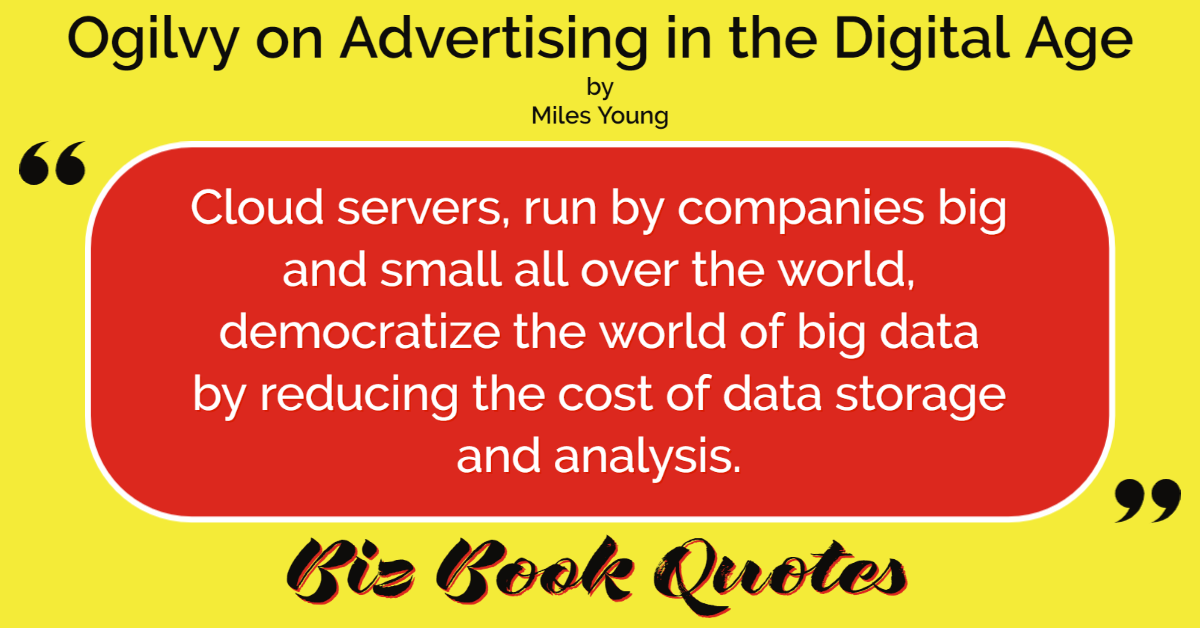 |
Cloud servers, run by companies big and small all over the world, democratize the world of big data by reducing the cost of data storage and analysis.
|
120 |
 |
…today… the principles [of data science] remain: people still struggle with the fundamental questions of what to analyze and why.
|
121 |
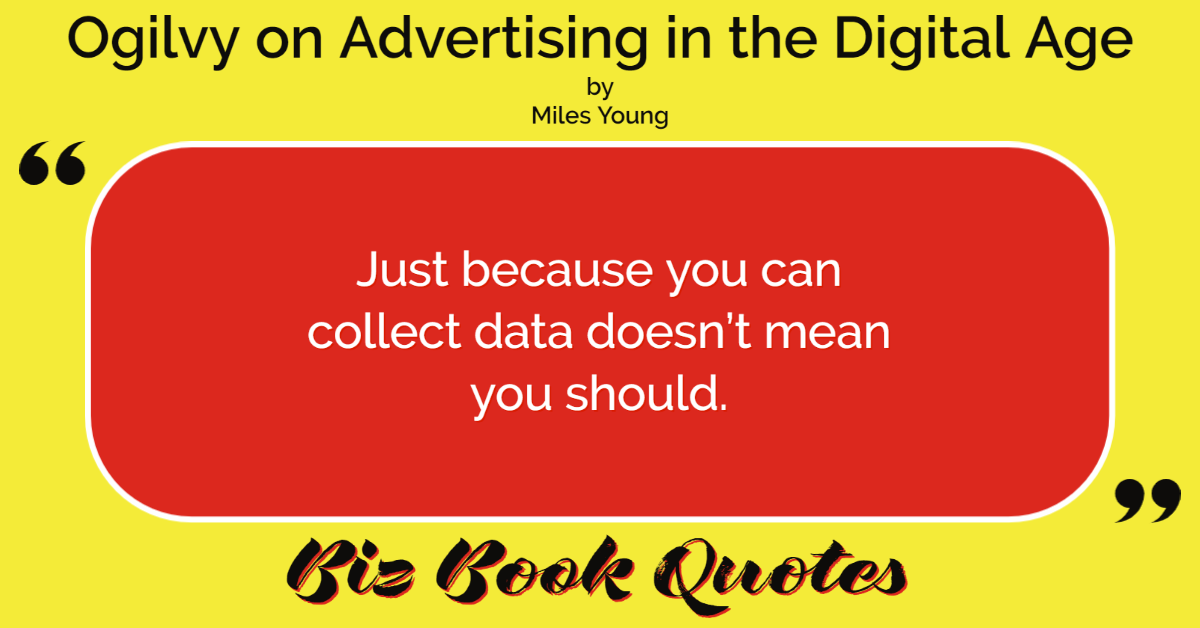 |
Just because you can collect data doesn’t mean you should.
|
122 |